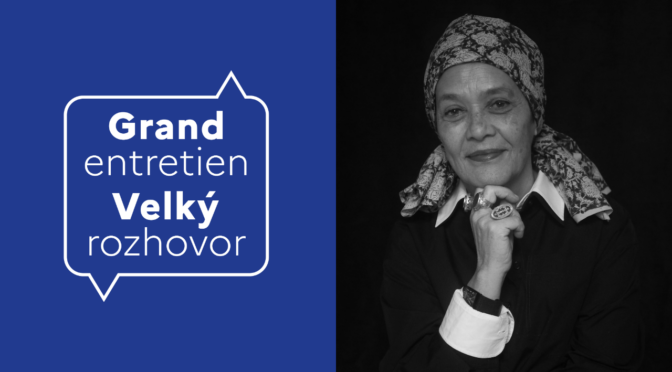Decolonizing Feminism – Grand Entretien with Françoise Vergès
On the occasion of the publication in the Czech edition of Un féminisme décolonial (La Fabrique, 2019) by Karolinum, CEFRES, the French Institute in Prague and Charles University invite you to a Great Interview with the author Françoise Vergès.
When: Wednesday, 12/3 2025, 6 pm
Location: French Institute in Prague, Štěpánská 35, Prague 1, 5th floor
Language: French with simultaneous Czech interpretation
Moderator: Chiara Mengozzi (CEFRES / Faculty of Arts, Charles University)
Who cleans up the world? It is with this question that Françoise Vergès introduces a decolonial feminism, taking as her starting point the underpaid, underestimated work that women, the majority of them racialised, do every day, all over the world, to make a society work. This feminism sees itself as the only one with a true understanding of women’s rights. Françoise Vergès defends an anti-racist and anti-capitalist feminism.
Françoise Vergès is currently Senior Fellow Researcher at the Sarah Parker Remond Centre for the Study of Race and Racialization at UCL, London, winner of the Bannister Fletcher Fellowship 2025, and a member of the scientific board of the Foundation for the remembrance of slavery. Her latest publications include Making the World Clean; Wasted Lives, Wasted Environment and Racial Capitalism (Goldsmiths Press, 2024).
Un féminisme décolonial. Paris, La Fabrique, 2019
Dekoloniální feminismus. Praha, nakladatelství Karolinum, 2025
In her book, “Françoise Vergès shows that decolonial feminism reveals the unthinking of the white conscience and denounces a capitalism that is both racial and patriarchal.
The sharp pages of her book, published in 2019, offer a different view of feminism and ask the tough questions: what alliances should be forged with white women? What solidarity with racialised men? What are the first lives threatened by racial capitalism? Why do neo-fascists attack racialised women? This book is an invitation to reconnect with the utopian power of feminism, that is, with an imagination capable of bringing about a radical transformation of society. “ La Fabrique

